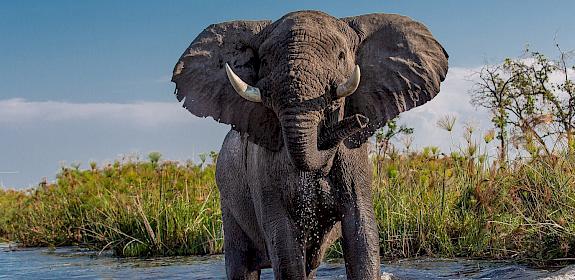Access and Benefit-sharing policies to be implemented in Viet Nam
Hanoi, Viet Nam, 23rd March 2017—Just under 60 representatives from government agencies, research centres, businesses, and NGOs gathered in Hanoi to discuss polices that facilitate the fair and equitable sharing of benefits for people who earn income from the cultivation or collection of medicinal and aromatic plant (MAP) resources.
In 2014, Viet Nam joined the 93 other signatories of a supplemental agreement to the Convention on Biological Diversity (CBD) called the Nagoya Protocol.
The Nagoya Protocol aims to implement one of three objectives of the CBD, which is the fair and equitable sharing of benefits arising out of the utilization of genetic resources and contributes to the conservation and sustainable use of biodiversity. The Nagoya Protocol also includes the benefits arising from utilisation of traditional knowledge associated with genetic resources that are covered by the CBD.
In Viet Nam, the Biodiversity Conservation Agency (BCA) under the Ministry of Natural Resources and Environment was appointed to be the focal point for the implementation of policies for access and benefit sharing (ABS).
“As a member to the Nagoya protocol and to strengthen implementation of Biodiversity Law in Viet Nam, we are taking steps to establish a regulatory system for utilization of genetic resources to ensure fair, equitable sharing of benefits,” said Dr Pham Anh Cuong, Director of the Biodiversity Conservation Agency.
“The BCA, as assigned by the government, is now drafting a decree to direct the implementation of ABS throughout the country. To do this, we want to ensure that we have the input of experts and other members of the value chain that are affected by this decree.”
One of TRAFFIC’s key roles is to ensure that trade in wildlife is sustainable. To achieve this, TRAFFIC focusses on enhancing the benefits from sustainable and legal trade in wild resources. Since 2013, TRAFFIC has been working with collectors of MAPs in Bac Kan Province to increase their capacity to manage their resources sustainably while improving their livelihoods by creating collector groups and cooperatives to connect them directly to the market place.
This meeting offers the opportunity for TRAFFIC and other key stakeholders to provide input into the development and implementation of policies that support access and benefit sharing of natural resources and legal, sustainable trade
Madelon Willemsen, Head of TRAFFIC’s Viet Nam Office“Soundly formulated Vietnamese ABS policies can further incentivise distributors, traders, and collectors of wild MAPs to protect biodiversity by increasing co-operation between buyers and collectors.”
Working closely with various government partners, and with funding from the Darwin Initiative, TRAFFIC has been promoting access and benefit sharing with collectors of wild MAPs in Bac Kan Province following the guidelines outlined under the FairWild Standard. This has led to improvements in livelihoods for local collectors and helped ensure that the harvest of wild MAPs is not a threat to the conservation of nature. Over the course of the project, 15 collector groups and one co-operative have been established.
Notes:
Notes:
In 2014, The Vietnamese government issued Resolution 17/NQ-CP to direct the implementation of the Nagoya Protocol. In this resolution, the Biodiversity Conservation Agency (BCA) under the Ministry of Natural Resources and Environment (MONRE) was appointed to be the focal point for ABS implementation.
Government representatives at the ABS meeting included members of the Biodiversity Conservation Agency under the Ministry of Natural Resources and Environment, the Ministry of Health (MoH), the Ministry of Agriculture and Rural Development, and Environment and the Ministry of Science and Technology. To contribute their expertise to the implementation of the new policy, TRAFFIC, HELVETAS, and Biotrade Implementation group accompanied the Academy of Social Sciences and the Academy of Science and Technology at the meeting. As integral members of the value chain, representatives from various pharmaceutical companies also joined the discussion.
About the Darwin Initiative

Funded by the UK Government through the Darwin Initiative.
The Darwin Initiative is a UK government programme with a focus on biodiversity projects.




